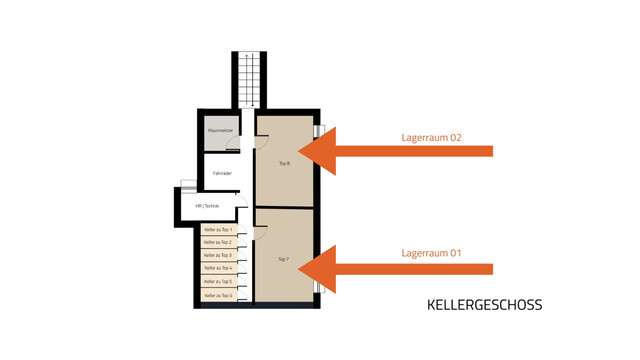GPA and Trade Association Demand Action Against "Austria Price Surcharge"

In May, the EU Commission announced that it would develop a proposal to abolish territorial supply constraints in the food industry by the end of 2026. However, it was later announced that by the end of 2026, they would only develop tools against unjustified restrictions that go beyond competition law. The union and the Trade Association suspect the influence of the brand industry.
GPA and Trade Association Criticize "Austria Price Surcharge"
Territorial supply constraints (so-called TSCs) are restrictions imposed by certain large manufacturers. These make it very difficult or impossible for retailers to purchase products in one member state and resell them in another.
The TSCs allow international producers to offer products in different markets at different prices. "These country-specific distribution strategies - especially in the food sector - hit the Austrian trade with full force," criticizes GPA head and SPÖ politician Barbara Teiber. "Our companies are not allowed to buy where it would be cheapest. Ultimately, the consumers pay the price, having to pay significantly more for everyday goods like food, cosmetics, or cleaning products than, for example, in Germany."
"The fact is that over 90 percent of procurement in the food retail sector still takes place nationally within the EU internal market," says HV Managing Director Rainer Will. "This is mainly due to the practices of the multinational food industry, artificially segmenting the EU internal market along national borders and thus making international procurement virtually impossible."
Other Small Countries Also Affected by Price Surcharge
For example, if an Austrian retailer purchases hairspray from a multinational producer, it can only be done through the national distribution company of the respective multinational. The hairspray costs the Austrian retailer 3.20 euros in procurement - a German retailer pays only 2 euros for the same hairspray as the purchase price.
The wholesale prices in small countries like Austria are generally significantly higher due to these TSC practices than those in large countries like Germany. This applies to most smaller countries in Europe, including Denmark, Belgium, or Luxembourg.
The Federal Competition Authority (BWB) found in its sector investigation of the entire food value chain an "Austria surcharge" on branded products of at least 15 to 20 percent compared to the German price level. This is attributed to the practices of international industrial corporations.
GPA Chief Teiber Demands Relief by Abolishing Delivery Restrictions
"Our Austrian retailers currently have to pay up to 60 percent higher prices for procurement depending on the product than German retailers," said Will. A "pure windfall" flows to the international branded goods industry. Teiber referred to an EU study, according to which consumers could save up to 14 billion euros annually by abolishing these delivery restrictions. "Especially in economically challenging times, this would be a noticeable relief for millions of people in Europe - and an overdue step towards fairer prices for everyone."
In recent years, EU authorities have repeatedly responded with fines against corresponding violations. The food giant Mondelez (Milka chocolate) was sentenced in May 2024 to a fine of 334 million euros for obstructing cross-border trade. Anheuser-Busch InBev (AB InBev), a competitor of Brauunion's parent company Heineken, and the largest brewery group in the world, was already fined 200 million euros in 2019. Investigations by the EU Competition Commission are currently underway against Procter & Gamble (P&G) on suspicion of illegal market foreclosure.
Call from GPA and Trade Association for Rapid Implementation of the EU Internal Market Strategy
But by no means do all practices fall under the umbrella of EU antitrust law, criticize GPA and HV. They welcome that the EU Commission intends to take action against all TSCs in the future - including those not previously covered by competition or antitrust law, even if the latest announcements are "not yet the be-all and end-all." Both GPA and HV demand a rapid legal implementation of the internal market strategy - at the EU level and in national application. "It is imperative to finally ensure equal purchasing conditions for retailers in all member states and to reduce the artificial price differences between European countries, for which domestic trade is often unjustly criticized," said Will.
phs/cgh
This article has been automatically translated, read the original article here.
Du hast einen Hinweis für uns? Oder einen Insider-Tipp, was bei dir in der Gegend gerade passiert? Dann melde dich bei uns, damit wir darüber berichten können.
Wir gehen allen Hinweisen nach, die wir erhalten. Und damit wir schon einen Vorgeschmack und einen guten Überblick bekommen, freuen wir uns über Fotos, Videos oder Texte. Einfach das Formular unten ausfüllen und schon landet dein Tipp bei uns in der Redaktion.
Alternativ kannst du uns direkt über WhatsApp kontaktieren: Zum WhatsApp Chat
Herzlichen Dank für deine Zusendung.








